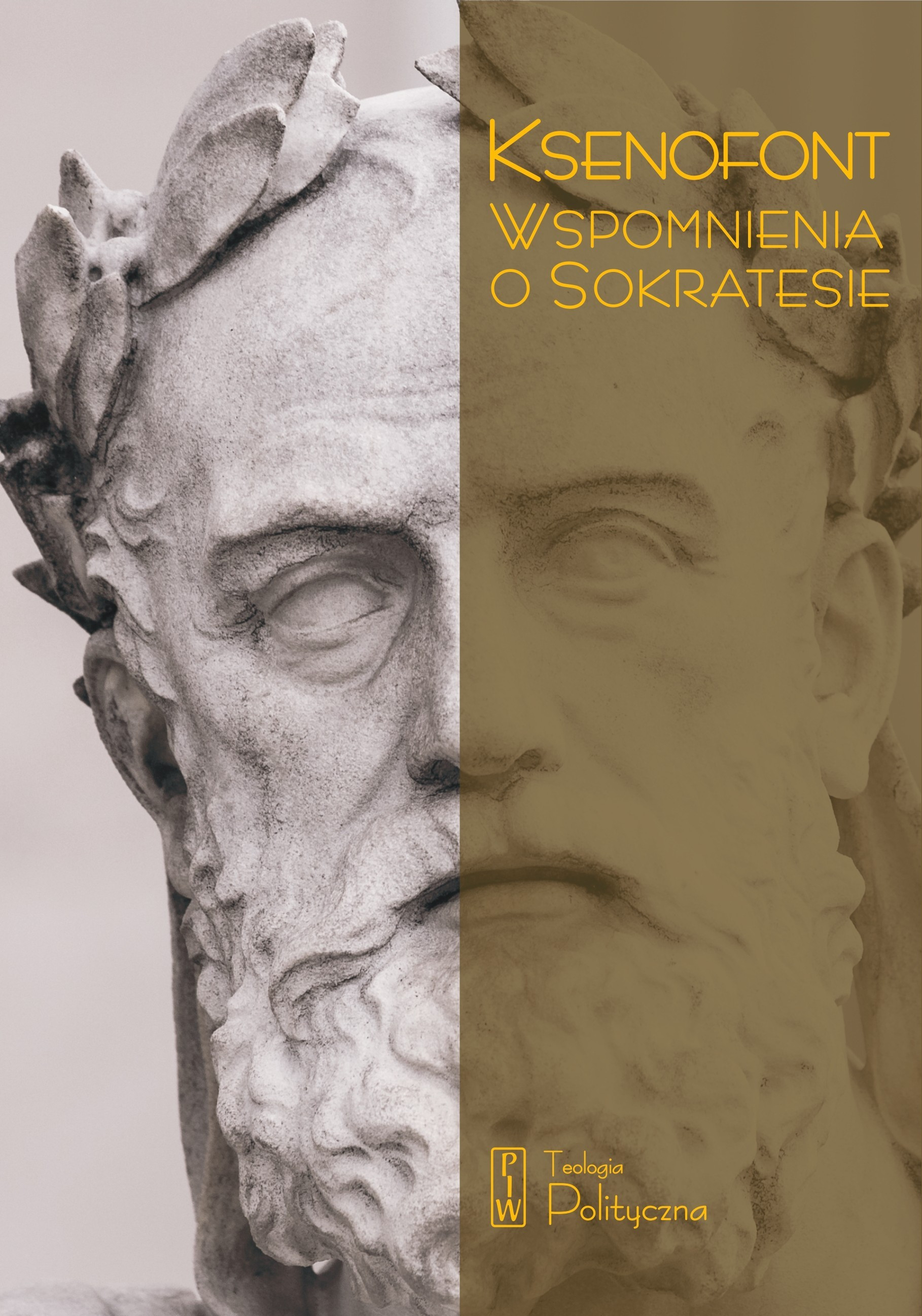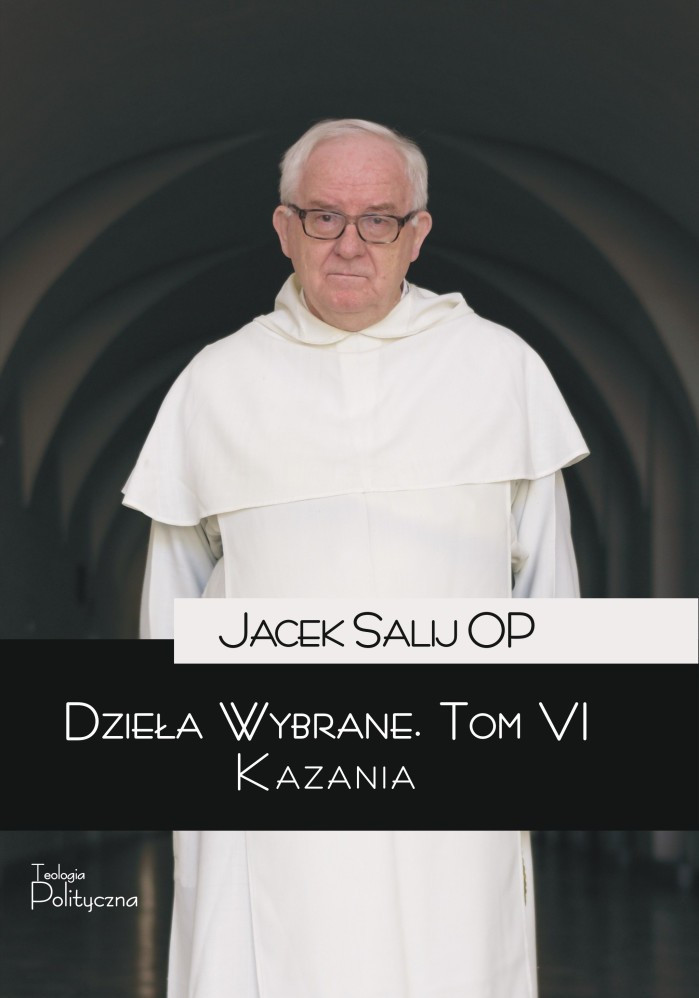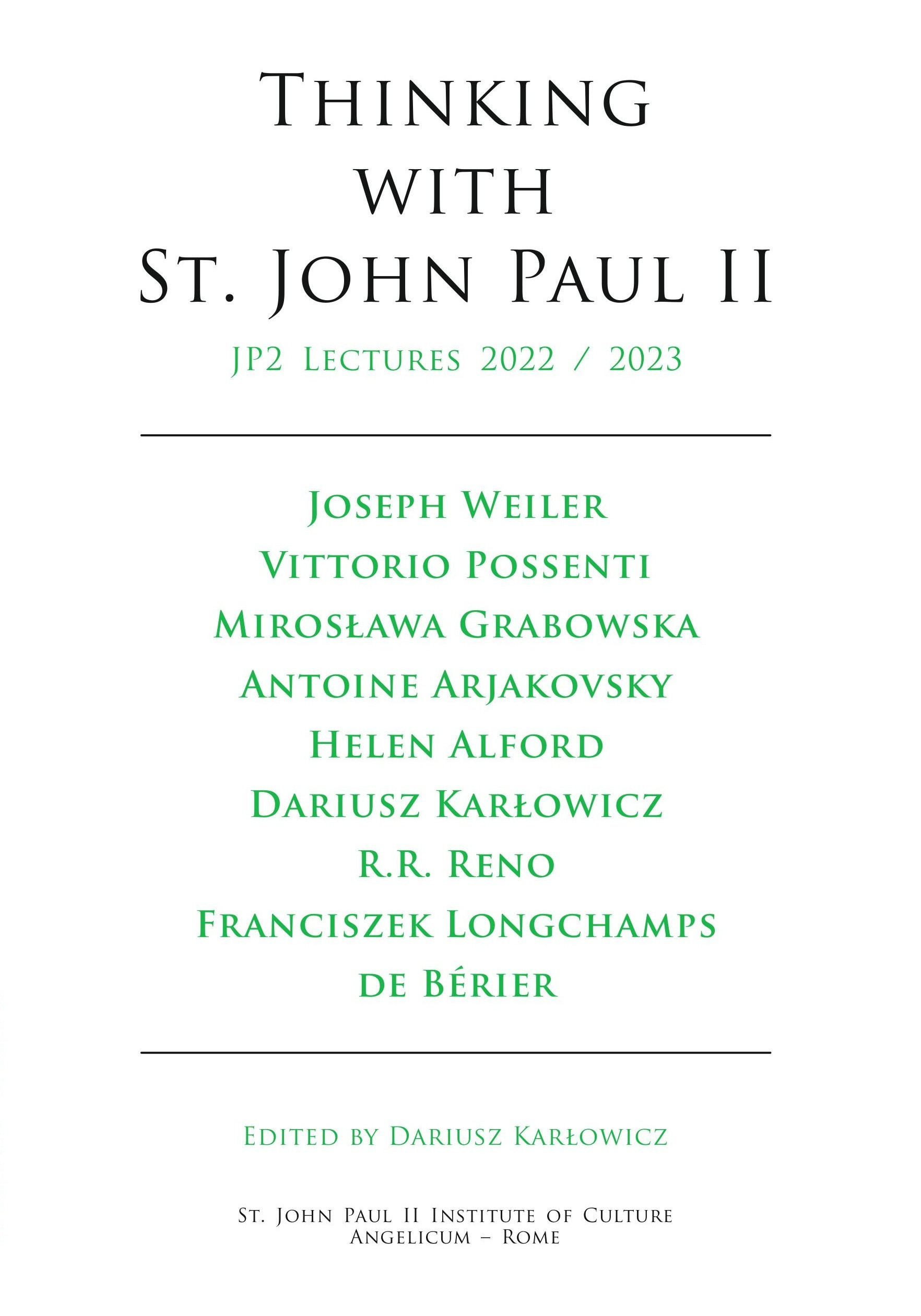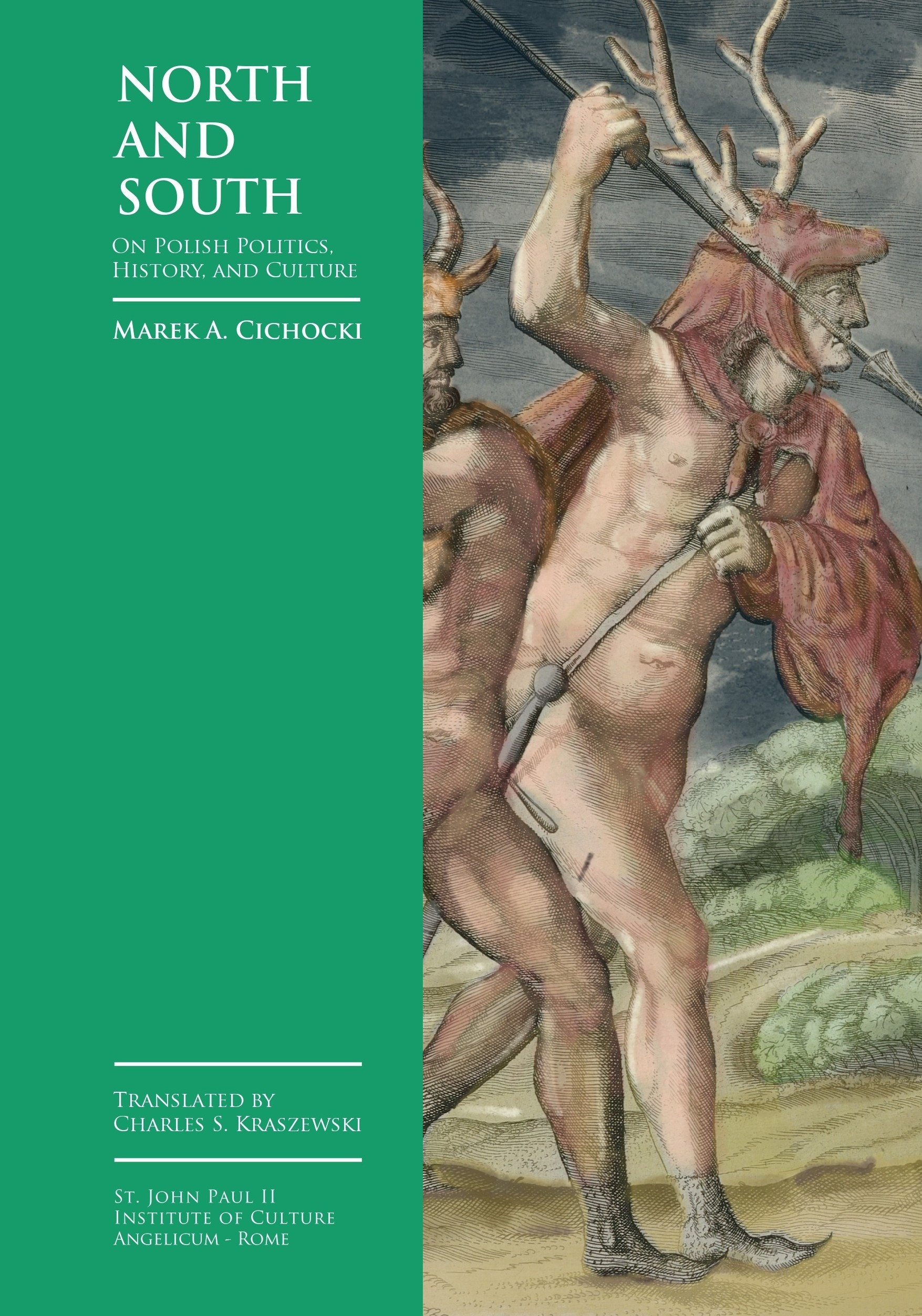[ESPECIALLY FOR POLITICAL THEOLOGY] George Weigel: The Truth About the McCarrick Report
![[ESPECIALLY FOR POLITICAL THEOLOGY] George Weigel: The Truth About the McCarrick Report](/assets/cms/ContentImage/2020/_resampled/ScaleWidthWyI5NDAiXQ/FOTOOOOO.jpg)
There is, in short, absolutely nothing in the McCarrick Report to substantiate or document the false claim posted on Poland’s largest internet portal: “The report proves that John Paul II is undoubtedly guilty of covering up pedophiles in the Church.” The McCarrick Report not only does not “prove” that. It does not assert that. On the evidence in the McCarrick Report, that assertion is as much a lie as the lies McCarrick told to John Paul II — writes George Weigel in an article written especially for "Political Theology".
The rush to judgment that quickly followed the long-awaited McCarrick Report – or to give it its full bureaucratic title, the Report of the Holy See’s Institutional Knowledge and Decision-Making Related to Former Cardinal Theodore Edgar McCarrick (1930 – 2017) – had much to do with the imperatives of an instant-news media environment, which is not accustomed to digesting carefully a 469-page, highly detailed document that reads like a legal brief. Yet the object of that rush to judgment – the attempt to lay the blame for McCarrick’s tawdry career on Pope St. John Paul II – suggested that other agendas were at work. For the fact of the matter is that the report, while demonstrating that John Paul did make a serious error of prudential judgment in appointing McCarrick as archbishop of Washington and a cardinal, contains absolutely no evidence that this was anything other than an error in judgment.
Read the Polish version of the text
The basic facts are these: Theodore McCarrick is and was a sexual pervert and predator, a pathological liar, and a manipulator who skillfully gained others’ confidence before betraying that confidence. Pathological liars and manipulators deceive people. McCarrick deceived many people: several presidents of the United States and other prominent political figures (including the current President-elect, Joe Biden and the Kennedy family); the wealthy Catholics who paid for his gaudy globe-trotting as a self-appointed diplomatic agent; the “progressive” Catholics who regarded him as a hero and for whose causes he helped raise money; his brother bishops around the world.
Theodore McCarrick is and was a sexual pervert and predator, a pathological liar, and a manipulator who skillfully gained others’ confidence before betraying that confidence
And, of course, he deceived John Paul II. In the 469 pages of the McCarrick Report, perhaps the most instructive document is the letter that McCarrick wrote to then-Bishop Stanisław Dziwisz, at the time when discussion of the appointment of a new archbishop of Washington was well-advanced. In that letter, McCarrick protested his innocence of the allegations that he had been a serial sexual predator, and Dziwisz naturally shared the with John Paul II.
The letter is chilling, for it is a brazen compound of multiple lies. On reading it, one is immediately reminded of Acts 12. 1-11: Ananias and Sapphira lying to Peter. The immediate results of McCarrick’s lies were not quite so dramatic as they were for Ananias and Sapphira, but the pattern was identical: a deceitful, unscrupulous, ambitious man lied to Peter, in the person of Peter’s 263rd successor.
There is, in short, absolutely nothing in the McCarrick Report to substantiate or document the false claim posted on Poland’s largest internet portal: “The report proves that John Paul II is undoubtedly guilty of covering up pedophiles in the Church.” The McCarrick Report not only does not “prove” that. It does not assert that. On the evidence in the McCarrick Report, that assertion is as much a lie as the lies McCarrick told to John Paul II.
So what would John Paul have us do with the McCarrick Report? I think he would ask us to read it carefully and without preconceptions, and then to draw the appropriate lessons from it. For the McCarrick Report is a lengthy confession of massive institutional system failure, in which a dysfunctional clerical culture played the dominant role.
“Clericalism” is such a buzzword in the Church today that it’s important to define the term carefully.
By “clerical culture,” I mean a culture in which the sacramental and natural fraternity of priests and bishops is debased into a caste system, in which the protection of the caste and the maintenance of its superior status in the Church is the prime imperative. In such a caste system, the lower clerical castes do not question or challenge the upper clerical castes, while the upper castes enforce caste discipline. In this sense of the term, Theodore McCarrick (for all that he cultivated the image of an ordinary, regular fellow] was intensely “clerical.” He was a product of the clerical caste system; he understood its mores and mechanisms; and for decades he used it to cover his depredations and advance his career. He was not without skills; he was an intelligent man and a gifted linguist who worked at a ferocious pace. But he was also a narcissistic predator and pathological liar whose “Uncle Ted” façade was intended to mask his ferocious ambition, his relentless self-promotion and sycophancy to superiors, and, of course, his depredations and abuse of lower members of the caste or caste-aspirants. He was a past master at gaining the trust of others and then abusing that trust.
McCarrick was a product of the clerical caste system; he understood its mores and mechanisms; and for decades he used it to cover his depredations and advance his career
The clerical caste system that McCarrick successfully manipulated for decades was dysfunctional in many ways, and one of its dysfunctions was the way in which it warped the Church’s decision-making process in the selection of senior leadership. The McCarrick Report reaffirms that, while there were many rumors of McCarrick’s misbehavior, there was no hard evidence of his depredations until he was at retirement age, and there was no charge of his having abused a minor until 2017 – which is to say, after John Paul II had left the scene. That is not altogether reassuring, however, because the rumors were out there and nothing was done to investigate them thoroughly until it was far too late. That is one grievous example of what I mean here by “system failure,” and the primary responsibility for that failure lies in the United States, not in the Vatican.
The report does indicate that Cardinal John O’Connor of New York thought the rumors sufficiently troubling that he raised cautions about McCarrick’s promotion from Newark to a traditional cardinalatial see like New York or Washington: cautions that Pope John Paul II originally accepted. But then McCarrick, a practiced and persuasive prevaricator, swore in the duplicitous letter previously mentioned that none of it was true. And John Paul believed him – perhaps influenced by the incomplete information the Holy See had received from three American bishops asked to look into the McCarrick rumors after O’Connor had raised his concerns; perhaps influenced as well by his experience of the Polish secret police using charges of sexual impropriety to impugn priests and bishops. Thus, and to repeat, the suggestion that John Paul II and his closest associates somehow knew the facts about about McCarrick’s wickedness and nevertheless proceeded with his promotion is falsified and rebutted by the report, as it should be. Even brilliant and holy men – even saints – can be deceived.
After that successful deception and manipulation of the Pope, McCarrick’s appointment to Washington and red hat followed. But the basic damage had been done long before John Paul II was deceived. The damage had been done because, throughout his pre-Washington career and indeed before his appointment as auxiliary bishop of New York, the clerical caste system had protected him, such that his skills and talents were visible, not his duplicities and perversions. That, too, was system failure.
Another manifestation of system failure was evident in what the report describes as the fruitless attempts by Benedict XVI and his associates to shut down McCarrick’s globetrotting after his retirement. The McCarrick Report makes clear that this was the Pope’s will and intention. But neither the will nor the intention were carried out and given effect by the relevant subordinates: in part, one can only assume, because, prior to the very recent past, cardinals occupied a virtually impregnable position in the Catholic clerical caste system.
In brief, Theodore McCarrick’s career – from his appointment as auxiliary bishop of New York until his retirement years as archbishop emeritus of Washington – was a massive example of system failure in the leadership culture of the Catholic Church. That failure, in turn, reflected the dysfunctionality of the then-dominant clerical caste system, the mores of which served to protect a predator like McCarrick from the consequences of his predations. Those serious about genuine Gospel-centered Catholic reform, rather than in score-settling or point-scoring in the internal Catholic culture wars, will thus focus their post-McCarrick Report attention on ensuring that the protective measures that have been put in place in the Church since the Long Lent of 2002 function properly, so that there are no repetitions of the tawdry tale of Theodore McCarrick.
Theodore McCarrick’s career was a massive example of system failure in the leadership culture of the Catholic Church
As I suggest in The Next Pope: The Office of Peter and a Church in Mission (soon to be published in Polish by W drodze) dismantling what remains of a clerical caste system that remains in place in parts of the world Church (including, many would say, Poland) should be a priority task for the next pontificate. Important steps have been taken in reforming the formation of priests and the selection of bishops by John Paul II, Benedict XVI, and Francis. Those first steps must be completed be a further reform of seminaries, such that a man reaches the threshold of priestly ordination understanding that he is embarking on a challenging and quite probably difficult vocation as a missionary, not on a privileged career. Those beginning steps must be completed by a reform of the process by which potential bishops are identified. That reform should include the input of knowledgeable, shrewd, and discrete lay men and women; and in that process of identifying the bishops of the future, it must be made clear to priests that complete honesty is expected of them in evaluating a brother priest’s fitness for the episcopate.
Dismantling the clerical caste system is going to make serious demands on the bishops of the Church. To guard against future McCarricks, bishops must insist that their priests exercise fraternal correction with each other when necessary, drawing the bishop into the process as necessary. And the bishops must commit to practicing fraternal correction with each other – a virtuous habit of the bishops of the patristic Church that the 21st-century episcopate most reclaim. Theodore McCarrick counted on the members of the episcopal “club” not to break the club rules. The path forward lies in dismantling those rules and consigning them to oblivion, along with the rest of the clerical caste system.
Priests and bishops need and deserve the support that comes from a sacramental fraternity. No serious lay Catholic will begrudge our pastors that. The clerical caste system, however, is a bogus form of fraternity. It warps the sacramental bonds that join priests to each other, priests to their bishop, and bishops to brother bishops. Dismantling that system is an evangelical imperative.
The clerical caste system is a bogus form of fraternity
One final note: the extensive documentation in the McCarrick Report should put paid to the mantra that has been chanted since McCarrick’s 2018 downfall: Everyone knew. That is simply not true. Not only did “everyone” not know; no one knew with certainty about McCarrick’s serial predations at the various key points at which he ascended the ranks of the hierarchy. The report illustrates in detail a fact already known, i.e., that there were multiple rumors about McCarrick’s behavior. That those rumors were not more thoroughly investigated was, as I have indicated here, a prime example of the system failure evident in this entire affair. But “everyone” did not know, and those who continue to insist otherwise are either ignorant or agenda-driven.
The eternal paradox of the Church, of which Christ himself spoke in Matthew 13.24-30, is that weeds and wheat, grave sinners and noble saints, co-exist and may even work together. That ought not diminish the shame Catholics feel over the McCarrick affair, nor should it preclude our praying for Theodore McCarrick’s man’s eventual repentance and conversion. By the same token, the sad fact of the weeds ought not diminish our gratitude for the wheat, and for the ways in which the wheat nourished us in the past and continues to nourish us still.
George Weigel is Distinguished Senior Fellow of Washington’s Ethics and Public Policy Center, where he holds the William E. Simon Chair in Catholic Studies. His most recent book, The Next Pope: The Office of Peter and a Church in Mission, was published in July 2020 by Ignatius Press; French, German, Spanish, and Polish editions will be available by the end of 2020.
The text was written especially for "Political Theology"
Read the Polish version of the text
PHOTO: https://www.religiousfreedominstitute.org/

Ty też możesz wydawać z nami książki, produkować PODCASTY, organizować wystawy oraz WYDAWAĆ „Teologię Polityczną Co Tydzień”, jedyny tygodnik filozoficzny w Polsce. Twoje darowizny zamienią się w kolejne artykuły takie jak ten, który właśnie czytałeś i pomogą nam kontynuować i rozwijać nasze projekty oraz tworzyć kolejne. Środowisko Teologii Politycznej działa dzięki darowiznom prywatnych mecenasów kultury – tych okazjonalnych oraz regularnych. Dołącz do nich już dziś i WSPIERAJ TEOLOGIĘ POLITYCZNĄ!
(ur. 1951 w Baltimore) – filozof i teolog katolicki, autor kilkudziesięciu książek, z których większość przetłumaczono i wydano również w Polsce – m.in. dwutomową biografię Jana Pawła II pt. „Świadek nadziei” oraz „Kres i początek”. Prowadzi Katedrę Studiów Katolickich Williama E. Simona w Ethics and Public Policy Center w Waszyngtonie. Odznaczony papieskim Krzyżem Pro Ecclesia et Pontifice oraz polskim Złotym Medalem „Zasłużony Kulturze Gloria Artis”.









